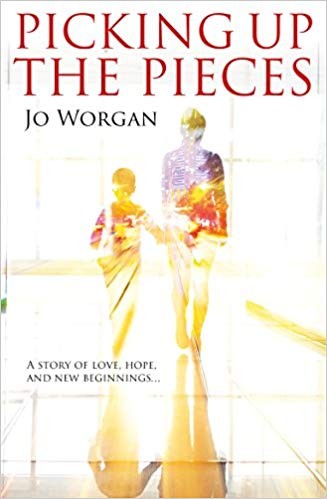 Parenting a child with autism is still a learning curve for me. Ten years on and I am still reading and learning from other parents, from individuals who are on the spectrum and from listening to my gut. Most of all I try and put myself in my son's shoes. It is him that I need to listen to, as I try and see the world through his eyes. It's not always easy.
Parenting a child with autism is still a learning curve for me. Ten years on and I am still reading and learning from other parents, from individuals who are on the spectrum and from listening to my gut. Most of all I try and put myself in my son's shoes. It is him that I need to listen to, as I try and see the world through his eyes. It's not always easy.
I had a lot of help and support in the early pre-school years. He was referred to a Child Development Centre at the age of two and was diagnosed with Autistic Spectrum Disorder (ASD) at three and a half years. We had input from play therapists, Speech and Language Therapists, support workers and a referral to a support group for children with additional needs. We learned to quickly adapt to meet my son's needs, all while caring for my other son who was only sixteen months older. I learned so much, so I thought I would share some of what I learned to help those who may be on a similar journey.
Get support
The most important thing that helped me was surrounding myself with people who knew and understood what was happening in my family's life. I was referred to a parent led support group for children with additional needs and it was here that my two boys could play in a safe space and I could chat to other parents. Going to regular toddler groups had become increasingly difficult. This group allowed me to talk about any worries and enabled me to ask for ideas and help. I also sought help for my son. Luckily, he was referred quickly, and additional support was provided in the nursery setting as well as the Portage service at home. I found these invaluable. You often hear about how early intervention is key for supporting autistic children, and I food this to be true, not only for my son, but for the entire family.
The home environment
We had to think about the home environment, and how we could meet my son's growing sensory needs. He was and still is sensory seeking. With the help of nursery and my outreach worker we made a sensory bag that included fidget toys, cars, books and squishy toys. This went everywhere with me and helped when we were out shopping. I also made up a sensory box at home and bought soft cushions and a soft floor mat as a make shift sensory den. This as a space in which he felt safe.
Plan your journey
My son likes routine and sameness and although life is not predictable there were, and still are some things that I do to help him feel safe and less anxious in the world. I plan our journey's out, this means that he knows were he will be going. He likes to know the order of things and likes to go to the same coffee shops. I am fine with this. Sometimes routine can be calming. When he was younger, I used PECS, visual images to explain what we would be doing that day and for several days ahead.
Seek information
Don't believe everything you read about autism and stay away from Google as there is so much misinformation out there. Instead seek information from trusted groups and charities such as the National Autistic Society and Anna Kennedy Online. Both have wonderful resources and tons of information. Cerebra also have a postal book lending library service and an online service where you can borrow sensory and play items for your child. It is well worth checking out. The most important thing to remember is that you are not alone. Find that local group, talk to your GP and nursery staff or teachers and find out what help is out there.
Jo Worgan is a freelance copywriter, columnist and book blogger. She has published four non-fiction works aimed at parenting children on the autistic spectrum. Picking up the Pieces, her second novel, is an original, moving narrative about a woman's search for happiness as she fights to protect her autistic son's future.
Published by Urbane Publications, Picking Up The Pieces is available from Amazon and bookshops.